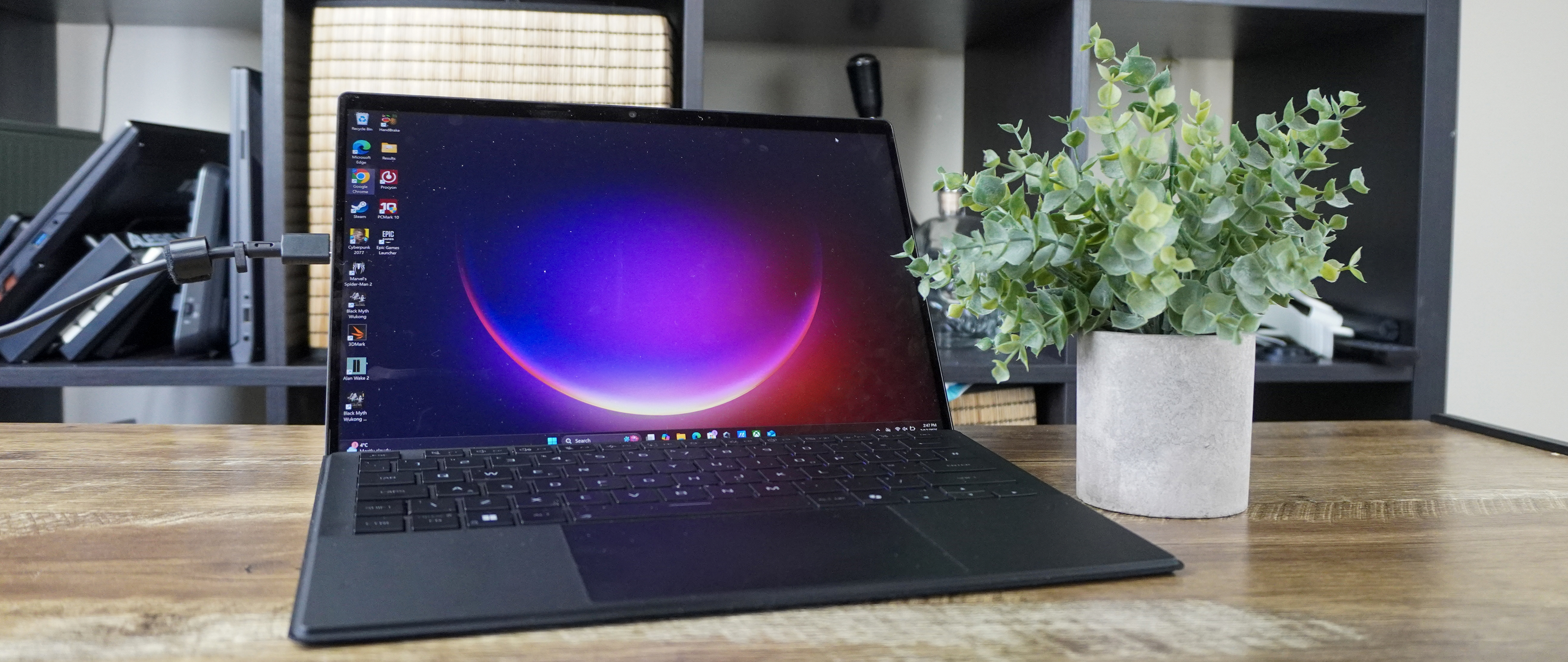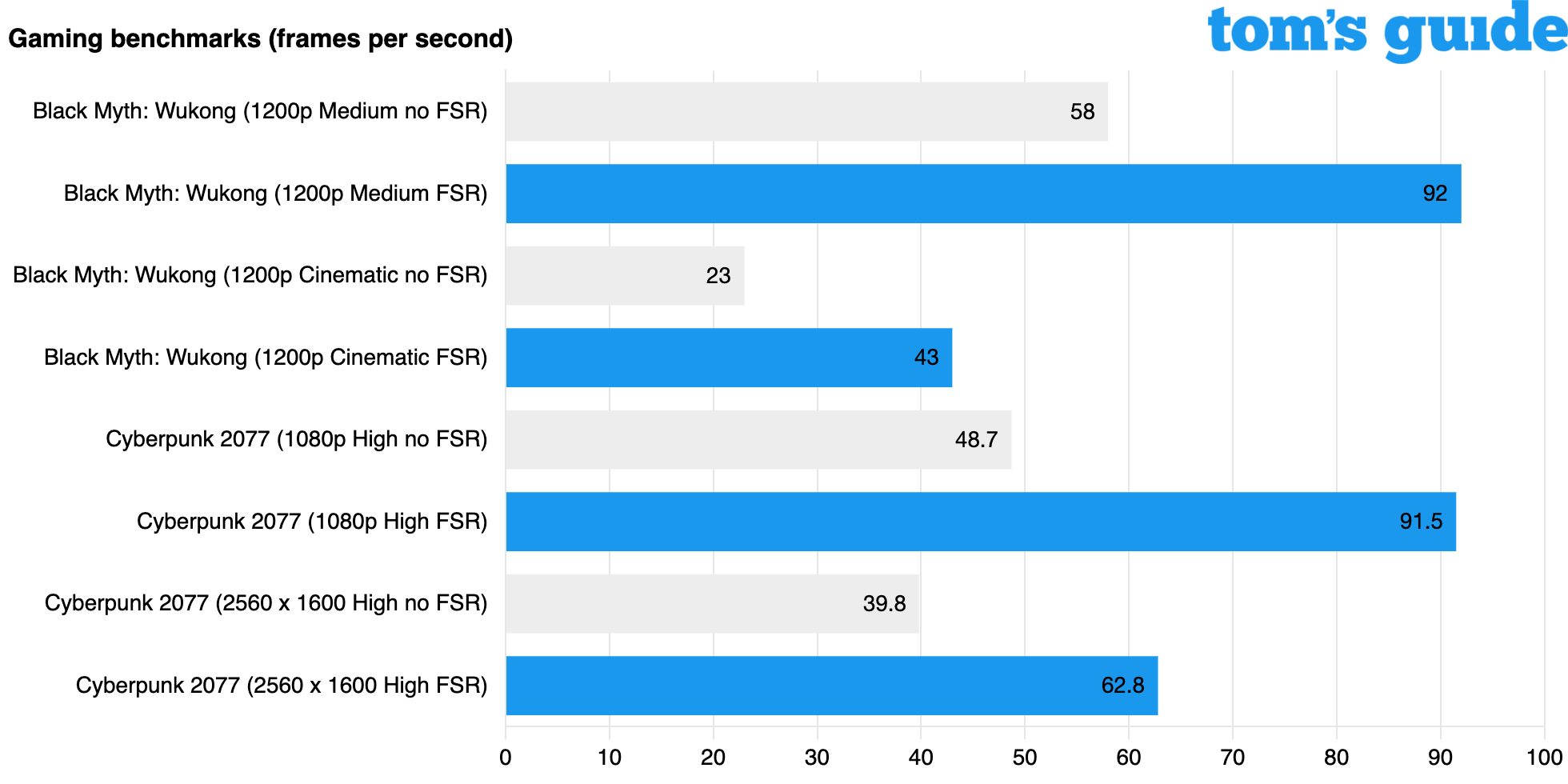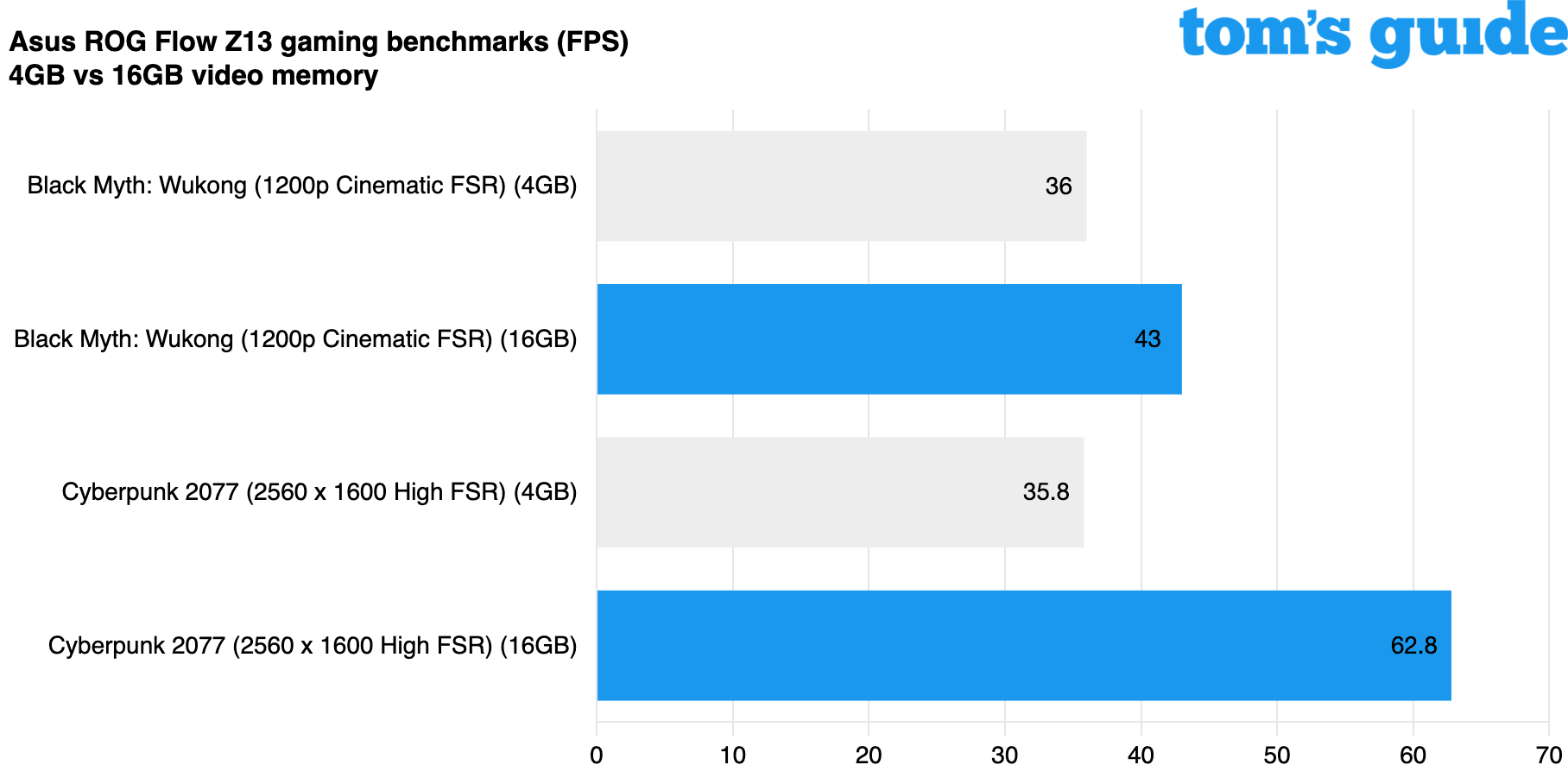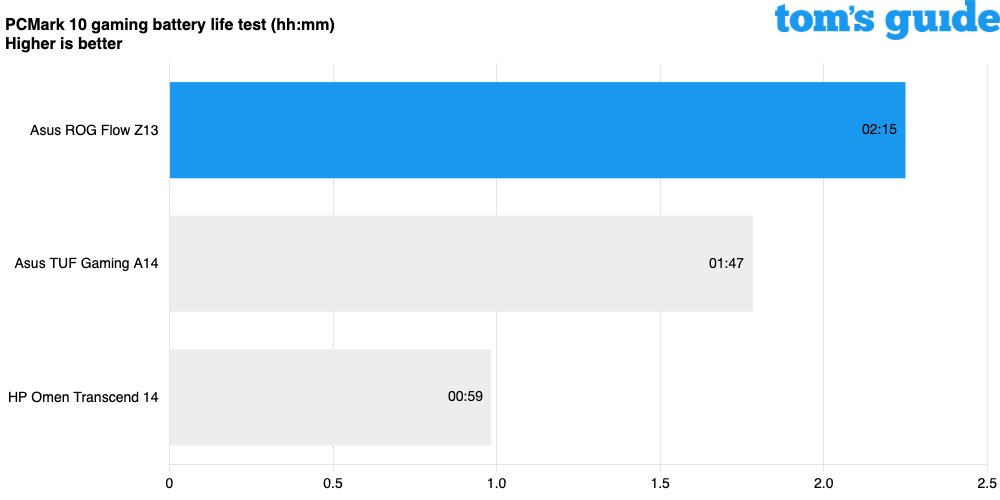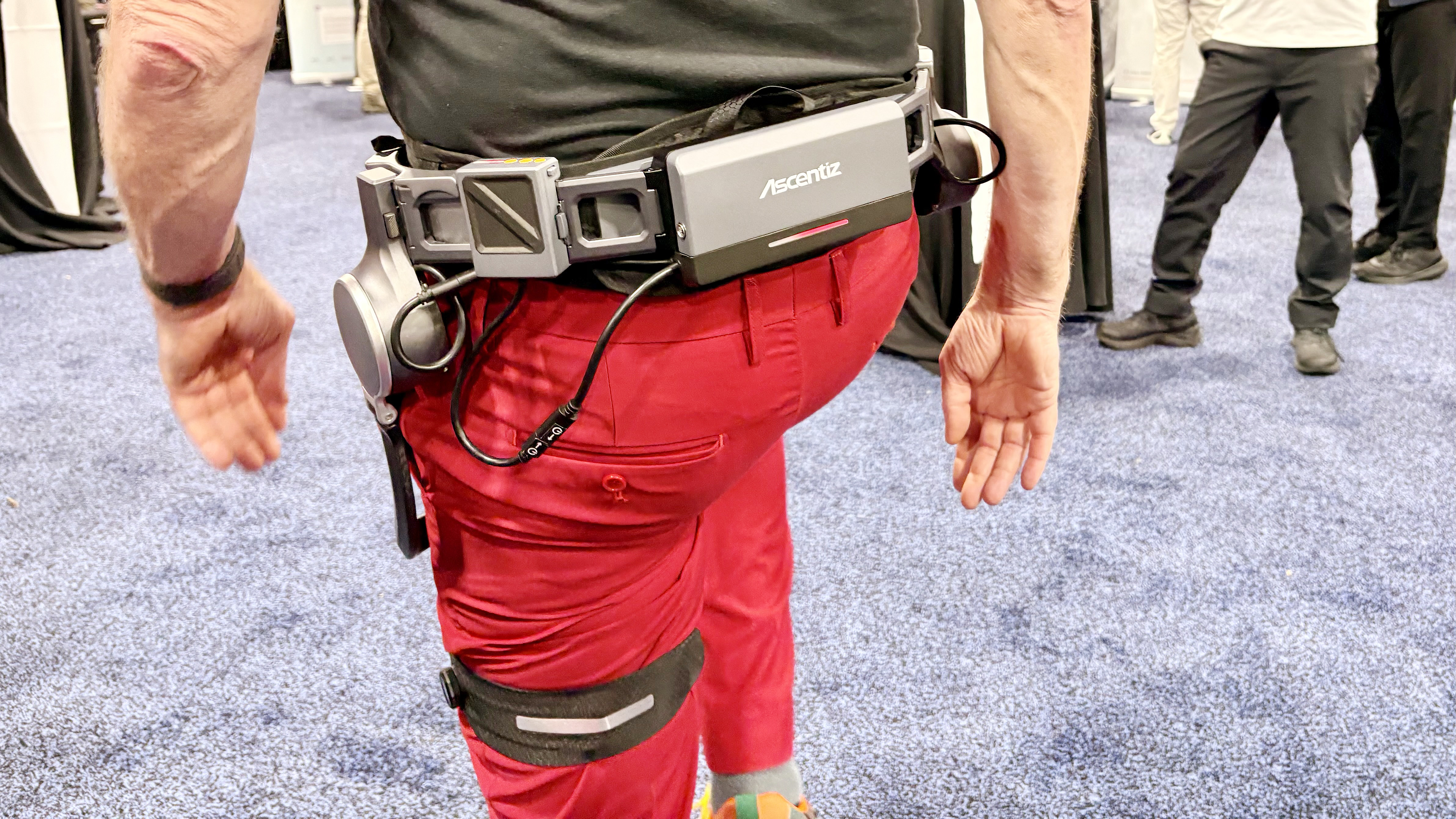Tom's Guide Verdict
The dream of Asus ROG Flow Z13 has been unlocked by AMD’s Herculean leaps and bounds in integrated graphics prowess — pairing raw performance with power efficiency into a sleek 13-inch tablet form factor that feels premium in the hand and is a versatile joy to use. Just watch out for that high price tag and it’s limited ray tracing performance.
Pros
- +
AMD integrated graphics are a marvel
- +
Impressive build quality
- +
Drop dead gorgeous display
- +
Strong battery life
Cons
- -
Ray tracing is limited
- -
Barren port selection
- -
$2,099 is steep
Why you can trust Tom's Guide
Over the years, the Asus ROG Flow Z13 has been my own personal diamond in the rough — never quite the missing link between a full-blown gaming laptop and a Steam Deck, but definitely that future dream I see. Fast forward to 2025, and that dream has been achieved, albeit with a couple of catches.
You’re going to see reviews point to these catches, and I won’t shy away from them either. Chief among them is that while the AMD Ryzen AI MAX 390 is a breakthrough chip for integrated graphics with RTX 4060 levels of performance, ray tracing is still a weakness for Team Red.
But while they may harp on about this, the whole is far greater than the sum of its parts. And for most of you reading this, I’m here to confirm this is one of the best gaming laptops you can buy, and easily the best 2-in-1 I’ve used in recent memory. Love the portability of playing on a gaming handheld? The versatility of ways you can game on the Z13 nails that. Want that all-in-one for work and play that a laptop can give you? You bet!
And as I predicted, the move to integrated graphics has done wonders for the battery life. For sure, there are more powerful portable gaming systems out there, but for that fine-tuned balance between power and stamina in such a sleek package, Asus has nailed it while making sure the ergonomics of using this as a laptop are good enough for long sessions.
In fact, the only real obstacle in its way now is the price. At $2,099, this is a costly investment when the equally performant (and cheaper) Asus TUF Gaming A14 is right there. But make no mistake about it. The company is cooking with this new 2-in-1, and the results are tasty.
Update (Feb 18 3:55pm ET): I've updated the results to reflect changing the video memory settings in AMD app to "high," and provided steps to do this. It's clear that Asus' default setting of 4GB is limiting the true capabilities of the ROG Flow Z13.
Asus ROG Flow Z13: Cheat sheet
- What is it? This is a 13-inch gaming 2-in-1 system.
- Who is it for? It's perfect for those who are looking for more horsepower than a PC gaming handheld and more battery than a laptop — all without sacrificing that portability and versatility of handheld gameplay.
- What does it cost? You can pick one up for $2,099.
- What’s good about it? That AMD Ryzen AI Max 390 chip is capable of some true gaming magic that matches the RTX 4060 dedicated GPU — all while offering improved battery life in that slim, ultraportable shell.
- What’s not so good? $2,099 is going to sting given the lower cost of gaming laptops with similar performance, and AMD still has issues with ray tracing.
Asus ROG Flow Z13: Specs
CPU | AMD Ryzen AI Max 390 (up to Max+ 395) |
RAM | 32GB LPDDR5x (up to 128GB) |
Storage | 1TB PCIe Gen 4x4 SSD |
Display | 13-inch 2.5K Mini-LED display, 16:10 aspect ratio, 180Hz refresh rate |
Ports | 1x HDMI 2.1, 2x USB4 Type-C, 1x Slim power jack, 1x Micro SD card slot, 1x 3.5mm headphone jack |
Wireless connectivity | Wi-Fi 7, Bluetooth 5.4 |
Battery | 70Wh |
Asus ROG Flow Z13: The ups
The biggest strengths became immediately apparent when I played Cyberpunk 2077 on the train down to the office in London. From the many ways I could play and the raw horsepower to play with, to the stamina.
Switch on speed
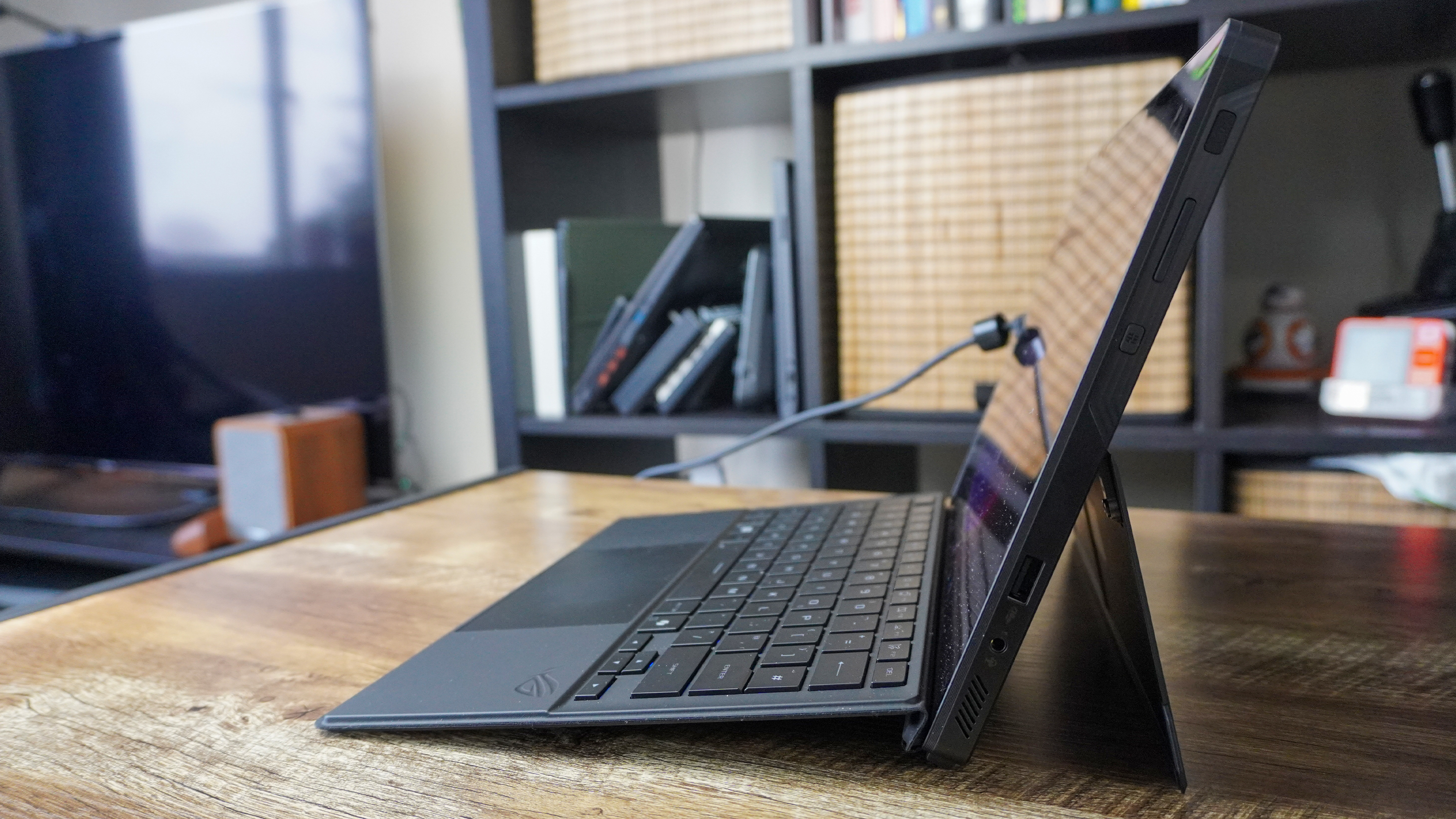
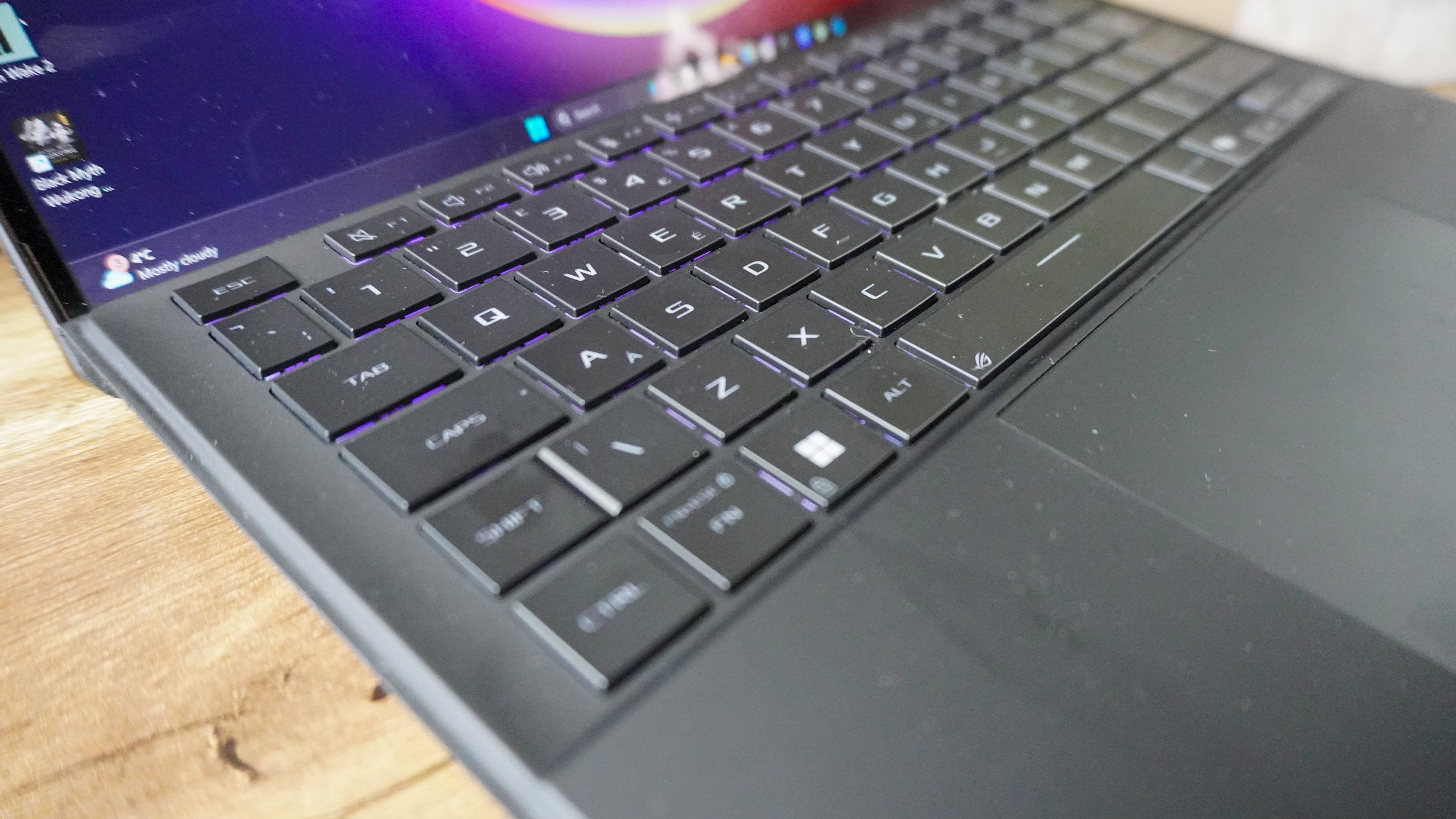
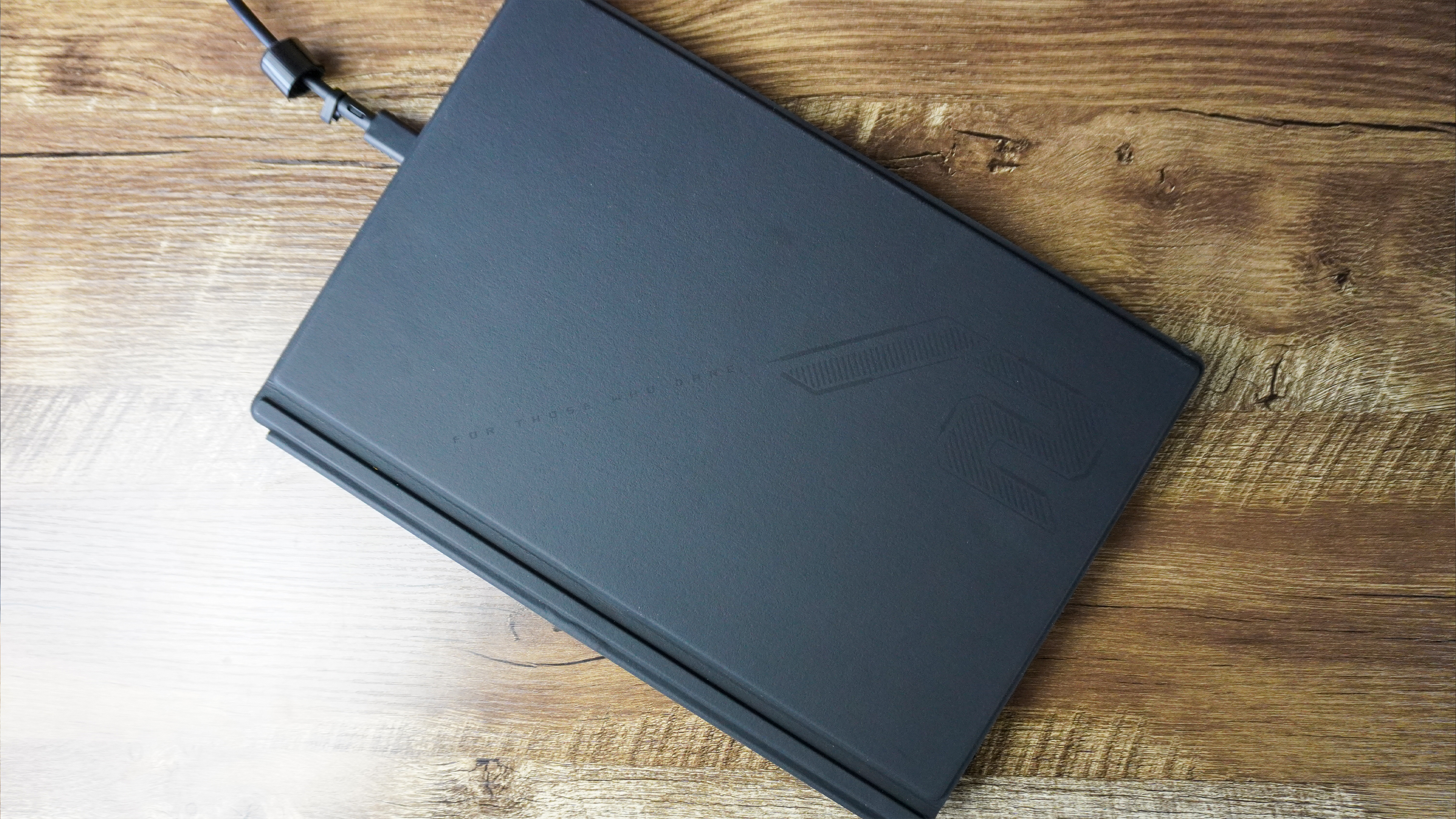
We’ve seen big screen gaming laptops and a new slew of Windows handhelds, but what is the middle ground? Acer would have you believe that it’s a rather silly-looking 11-inch handheld. But being real, I think Asus cracked the formula with this 13-inch 2-in-1 shell.
Get instant access to breaking news, the hottest reviews, great deals and helpful tips.
Laptop | Dimensions | Weight |
|---|---|---|
Asus ROG Flow Z13 | 11.8 x 8 x 0.6 inches | 2.7 pounds |
Asus TUF Gaming A14 | 12.2 x 8.9 x 0.7 inches | 3.2 pounds |
HP Omen Transcend 14 | 12.3 x 9.1 x 0.7 inches | 3.6 pounds |
Of course over time, the company has been able to work on improving some key elements of the user experience too. The CNC-milled aluminum unibody chassis feels great in the hand and is even more versatile for all your gaming needs with a 170-degree kickstand.
That Mini-LED display up top is sharper at 2.5K, more colorful with a high DCI-P3 color gamut and smoother than what I’ve seen in the past at 180Hz. Whether you're blaring through the colorful streets of Mexico in Forza Horizon 5 or feeling the darkness around you in Silent Hill 2, the display is an immersive window into your gaming.
Laptop | Display average brightness (nits) | DCI-P3 color gamut |
|---|---|---|
Asus ROG Flow Z13 | 455.2 | 81.6% |
Asus TUF Gaming A14 | 425.6 | 78.4% |
HP Omen Transcend 14 | 392 | 135% |
And as for using the machine, that keyboard cover has a nice tactile feel to every key and a generously-sized smooth touchpad. Plus, the instant multitouch response of that touchscreen is awesome for quick zoom interactions and fast taps of the task bar.
Bridging the gap between dedicated and integrated graphics
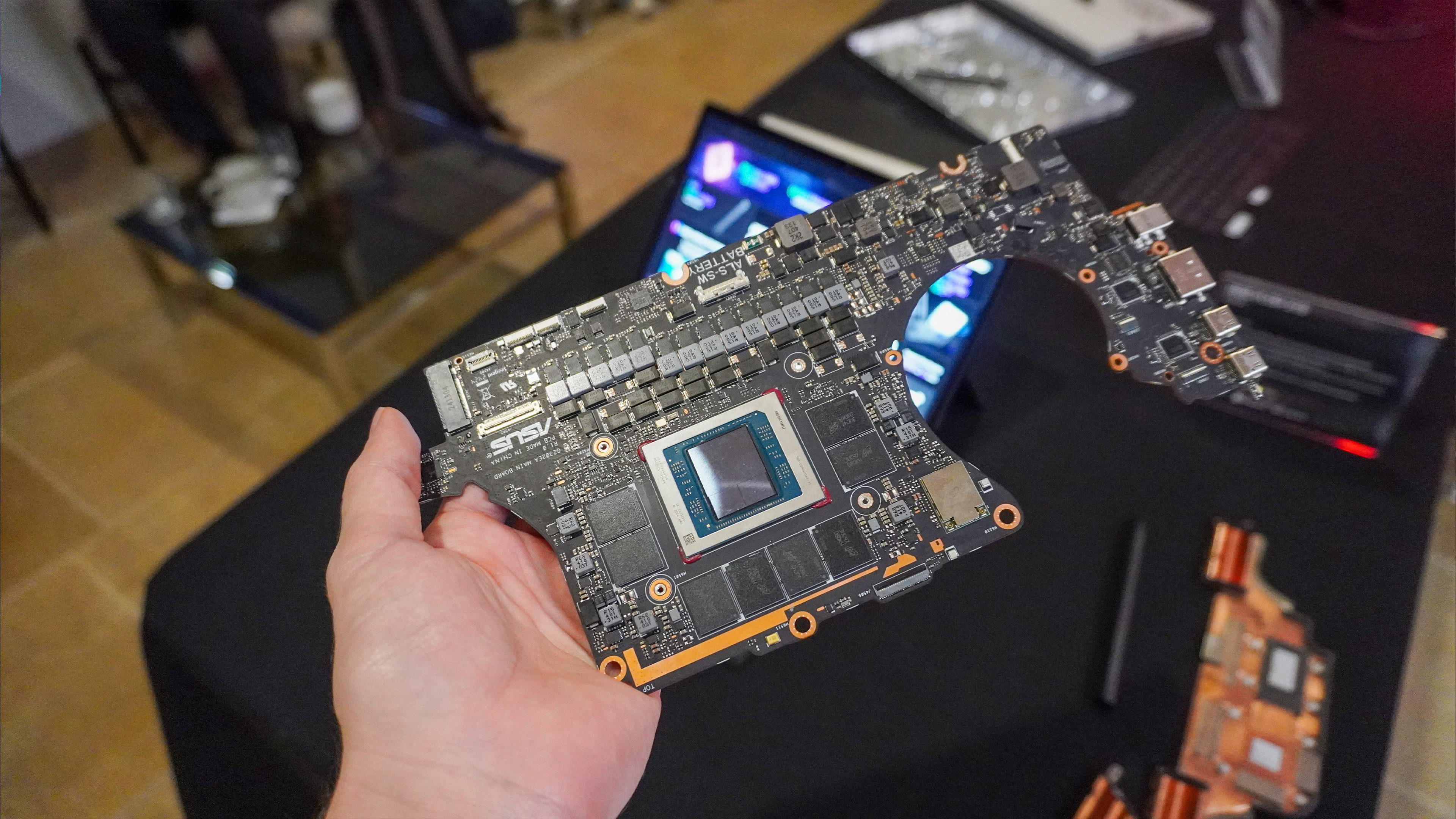
Historically, the ROG Flow Z13 has had to rely on a relatively underpowered dedicated GPU gaming. Not to say this was an overtly bad decision, but it was one that came with some downsides — namely poor graphical fidelity paired with bad battery life. No matter how low you tune a dedicated GPU, it's still a power hog.
Well that’s where the AMD Ryzen AI Max 390 APU comes in. Rocking 12 cores and 24 threads, alongside a beasty 32 graphics cores. Feeding both CPU and GPU is a new unified memory architecture, which gives each element more than enough of what it needs to avoid any bottlenecking.
And the end result? Starting with when you have work to do on this thing, you won’t feel a single element of slowdown — no matter how much multitasking you throw at it. Like my monster test of over 30 Chrome tabs, processing RAW photo edits and rendering a 4K video with Apple Music blaring in the background.
Laptop | Geekbench 6 single-core | Geekbench 6 multicore | Handbrake test (transcode 4K video to 1080p mm:ss) |
|---|---|---|---|
Asus ROG Flow Z13 (AMD Ryzen AI MAX 390) | 2896 | 17876 | 03:12 |
Asus TUF Gaming A14 (AMD Ryzen AI 9 HX 370) | 2863 | 13729 | 03:22 |
HP Omen Transcend 14 (Intel Core Ultra 7 155H) | 2362 | 13248 | 04:57 |
But let’s get to the main event here. The leaks pointed towards gaming performance that matched RTX 4060, and in reality, this comes damn close to a full-watted GPU and beats anything that's been under-powered. There is a catch when it comes to ray tracing performance, but more on that later. Let’s just get to the big win here.
Laptop | Cyberpunk 2077 (1080p) | Red Dead Redemption 2 (1080p Medium) |
|---|---|---|
Asus ROG Flow Z13 (AMD Radeon 8050S Integrated) | 28.7 FPS | 59.8 FPS |
Asus TUF Gaming A14 (RTX 4060) | 29.6 FPS | 60.2 FPS |
Asus ROG Zephyrus G14 (RTX 4070) | 25.5 FPS | 52.6 FPS |
With up to a 120-watt TDP potential being pumped into that chipset, the frame rates at high graphics settings are, frankly, bonkers for an integrated GPU. But this is only half the story. What on AMD’s FidelityFX Super Resolution (FSR) tech for frame generation and resolution scaling, and the end results are even more impressive.
The real Steam Deck magic comes into play here. With a traditional gaming laptop, setting it up to play feels like an occasion — setting it up on your desk and getting into the game can take a while. With this tablet form factor, it can literally be as easy as tapping into the game and picking up your pad on the sofa.
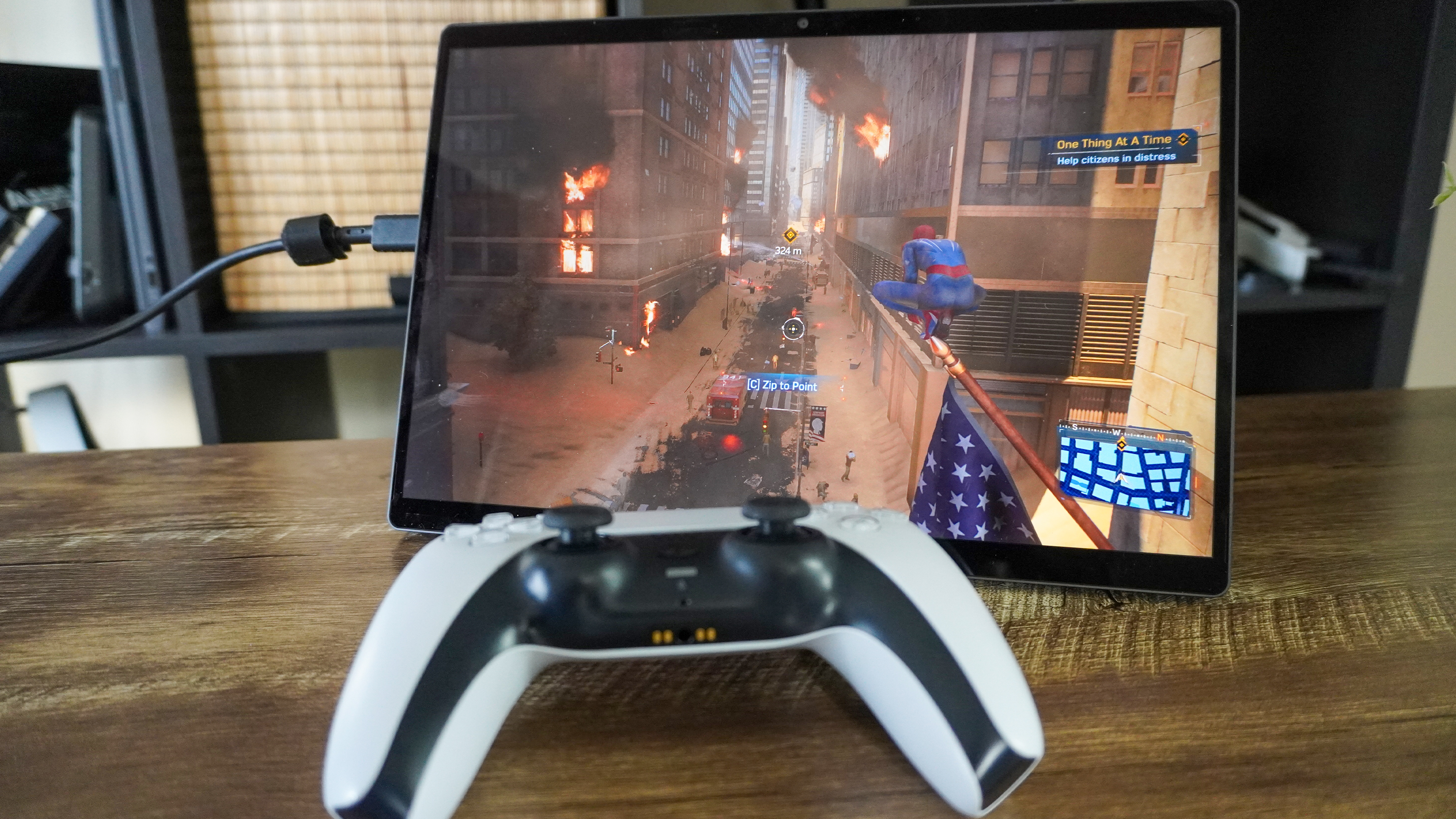
When conversation with friends gets dull and dry, the speed of getting into a game cannot be understated (hope my mates don’t read this bit). But getting this propped up on a coffee table or cushion in front of you means you can literally play anywhere.
How to use AMD app to make the most of your Asus ROG Flow Z13
So, chances are I'll write a separate piece about this too, as it's worth going into! Like any gaming laptop, there's a dedicated app to tune it. For this being an AMD-based system, you've got an AMD app, and you can customize how much of that shared system memory goes to the GPU.
For some weird reason, Asus is shipping the Flow Z13 set to just giving 4GB of memory to the GPU — nowhere near enough for games. But the moment you go in and change that to 16GB, the results speak for themselves.
Those are some significant increases here — almost like you've given your Flow Z13 a shot of adrenalin! And what's more, I could've squeezed even more out of this. But to be safe, I'm keeping it at 16GB of memory dedicated to the GPU, as to keep 16GB for system RAM. That's the right balance for maintaining multitasking too.
So, before you do anything, here's how to change this crucial setting.
1. Open the AMD app
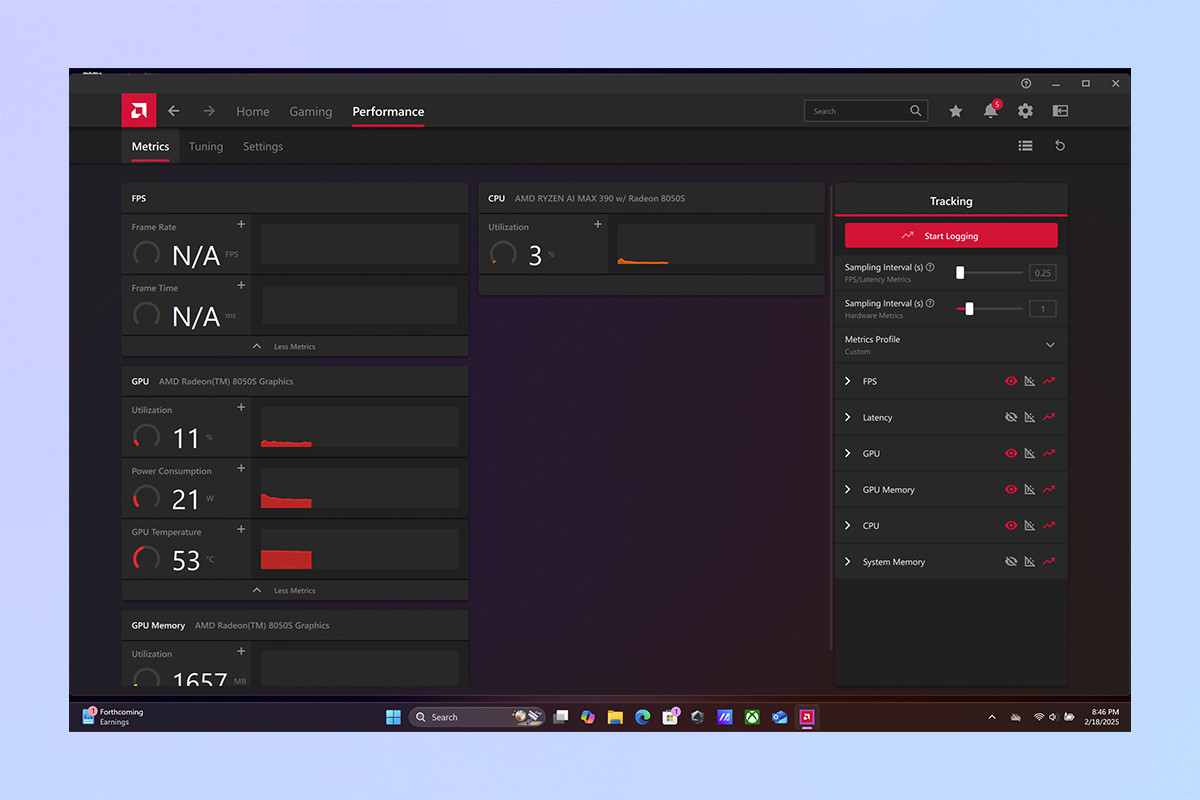
You'll find it in the start menu. Once there, click on performance. Quick note: this is a great place to see key system stats on what is putting any particular pressure on the AMD chip, and even run a full live log in the background.
2. Head to tuning
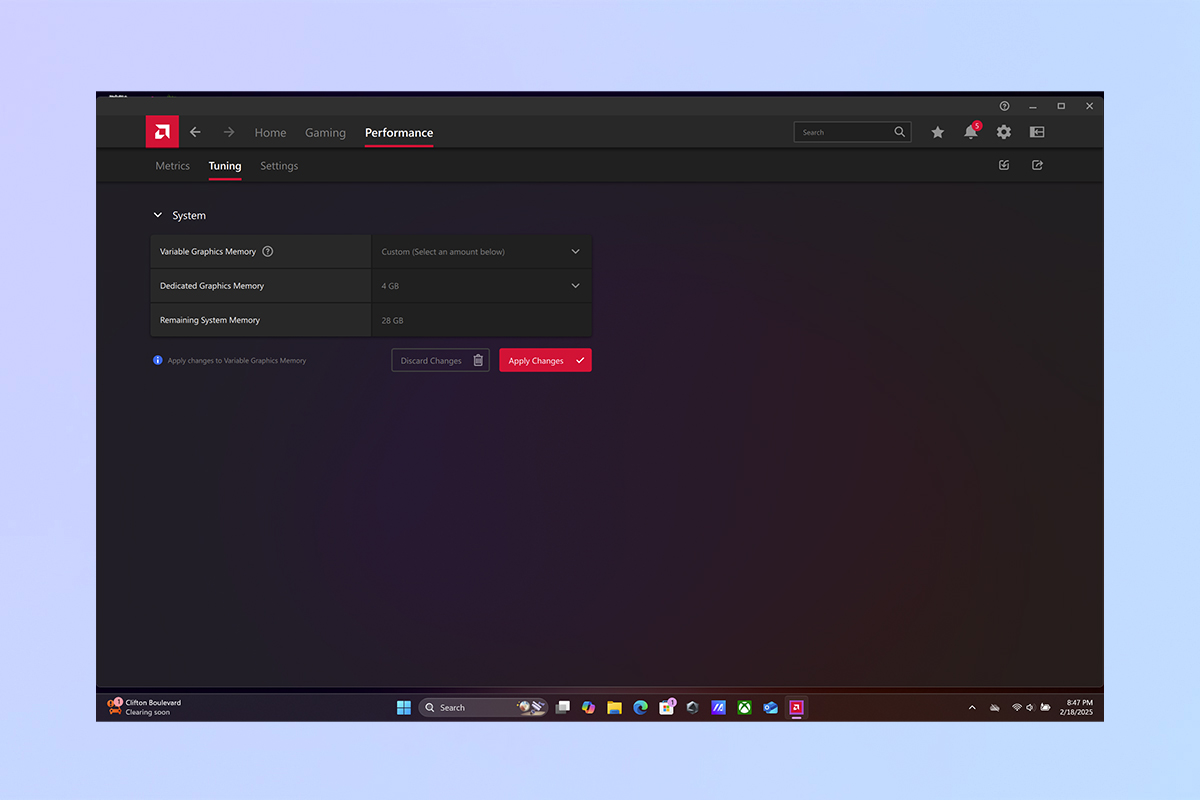
From here, you'll see Asus has it set to custom with Dedicated Graphics Memory set to 4GB. This is silly!
3. Change it to high
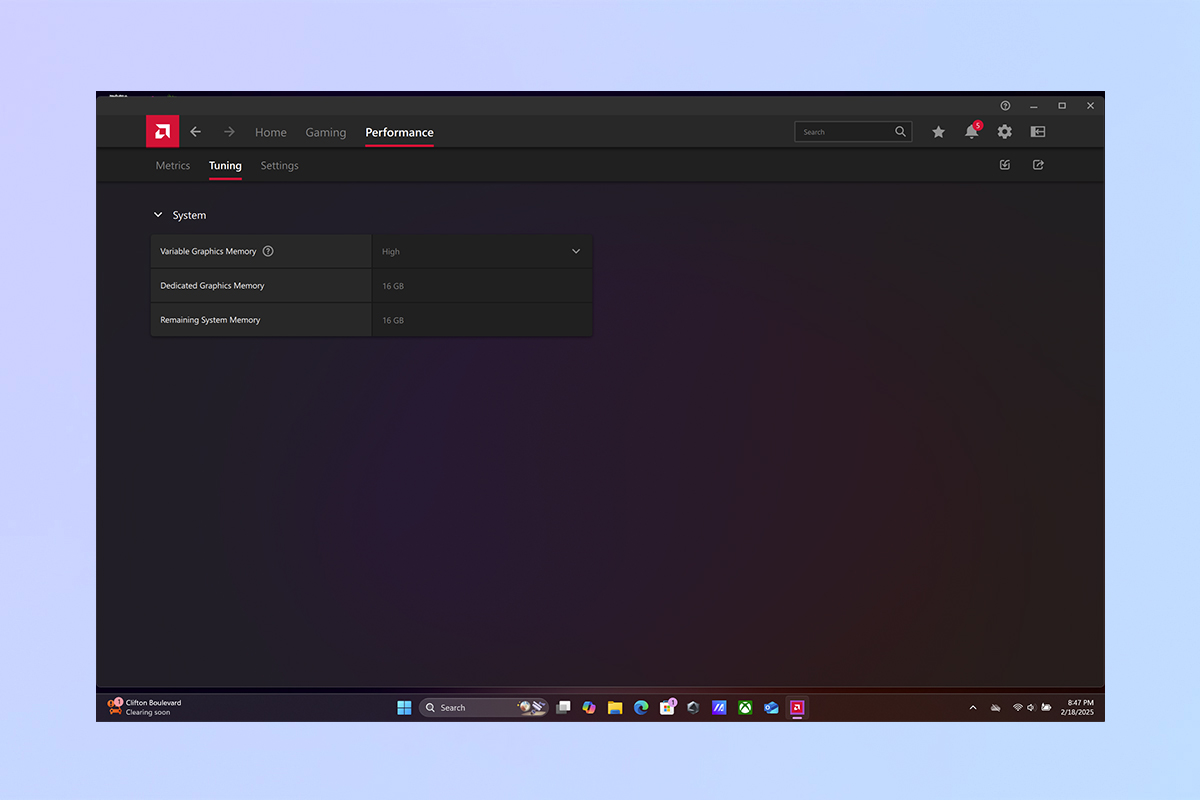
Click the drop down arrow next to Variable Graphics Memory, and then set it to High. This will give your GPU 16GB of video memory to play with — giving you the huge jump in frame rates that I saw.
Properly good battery life
That 120W TDP is a lot of raw horsepower to throw at games, but you'll see the Z13 stick around 60W most of the time — a lot lower than gaming laptops with dedicated GPUs. Plus, powering two separate chips is definitely not the most power-efficient way of doing things.
Feeding this all through one chip with its own power management optimizations makes for an impressive leap in battery life that puts it squarely in Steam Deck territory.
As for Asus’ claim of 10 hours, this can be hit when watching video at a lower brightness level (the best way companies squeeze extra juice out to form a big number). But in regular day-to-day use, I hit around the 7-8 hour mark with a varied workload.
Make no mistake about it, this formula is ticking every box when it comes to striking a balance between giving you enough performance for your AAA titles to look super pretty, while also keeping fan noise nice and low, thermals on the cooler side and stamina at its core.
Asus ROG Flow Z13: The downs
But while the majority of my gripes have been resolved, there are three obstacles — one caused by AMD’s own issues, another that I’m gonna chalk up to being “just a tablet thing,” and a final one that can be a tough pill to swallow.
Limited port array
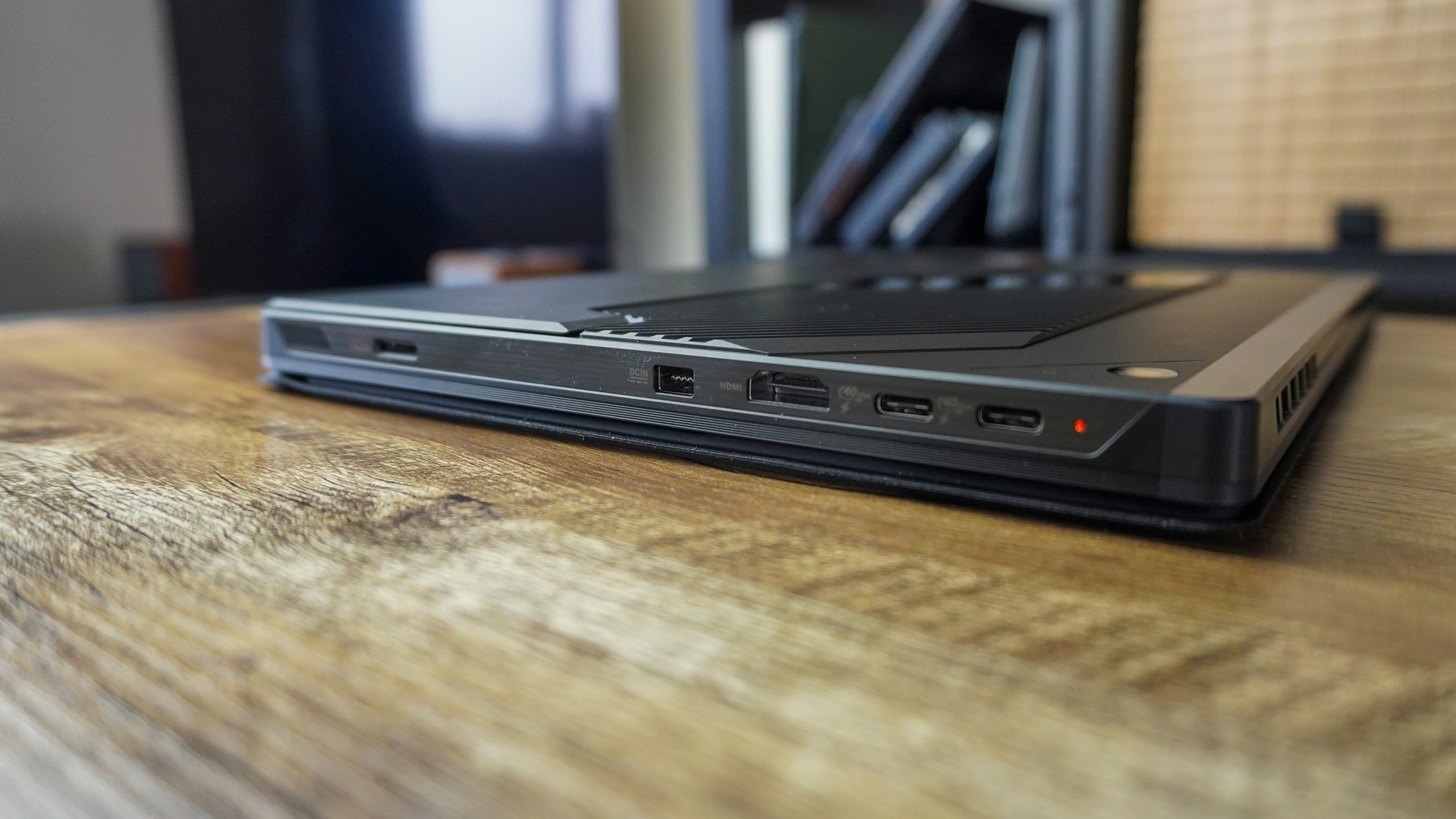
Yes, I get this is a different form factor to the beefy gaming laptops, which are so full of holes you’d think they were peppered by a Tommy Gun. This is a tablet, but also it could’ve been Asus’ chance to really define what a gaming 2-in-1 is.
Instead, the the ethernet has been ethered, and don’t even get me started on the fact that there’s only two USB-C on here. For gaming purposes, you absolutely need more — especially if this is being pitched as a portable, versatile alternative to the traditional juggernauts.
Ray tracing is the thorn in the paw
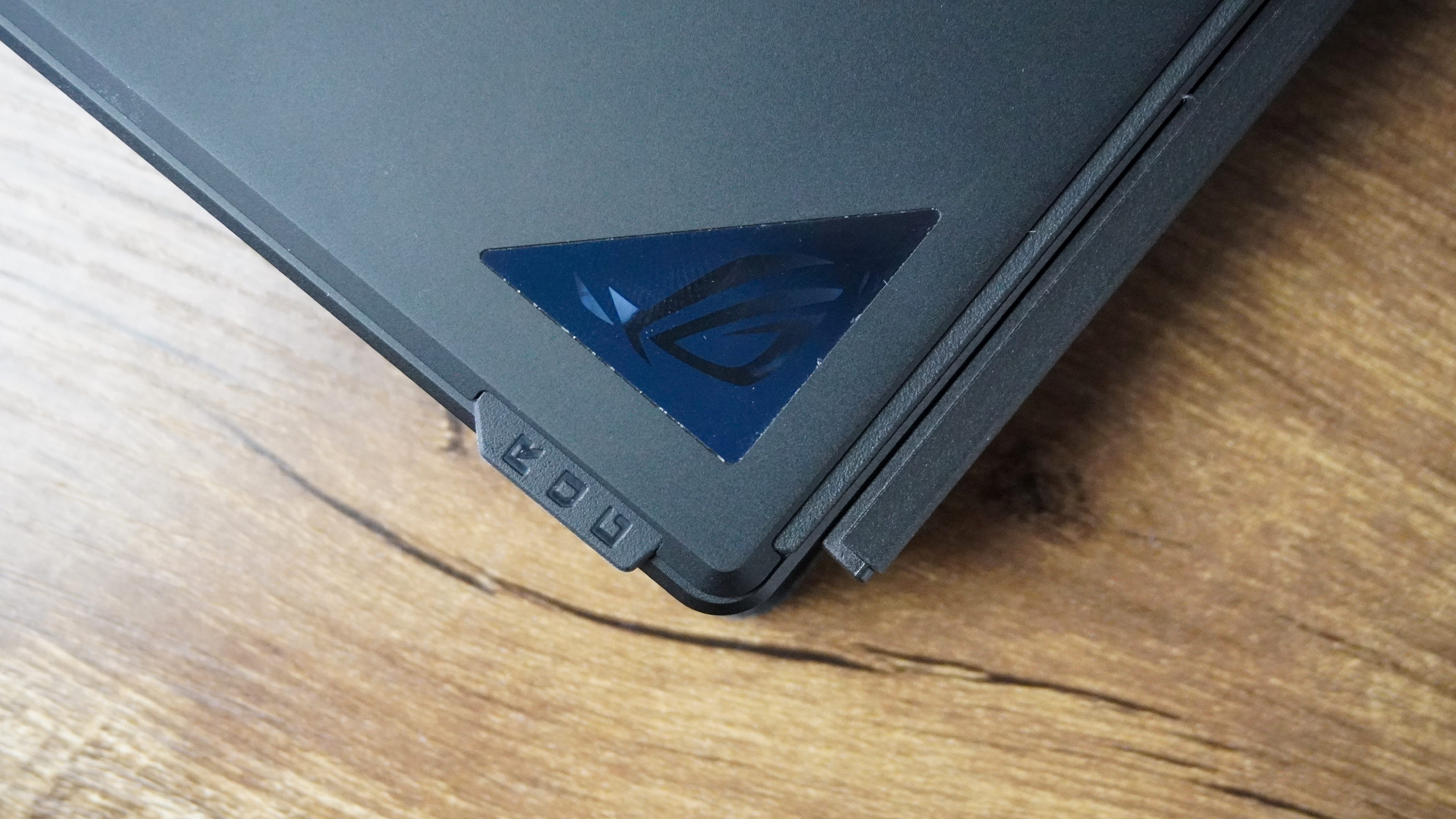
If there’s one thing that Nvidia continues to have a commanding lead on when it comes to graphics rendering, it’s ray tracing. And while the majority of gaming performance comes close to (and matches) a mid-range RTX card, bring RT into the mix and things start to fall apart.
Laptop | 3DMark Fire Strike | 3DMark Speed Way |
|---|---|---|
Asus ROG Flow Z13 (AMD Radeon 8050S Integrated) | 18985 | 1600 |
Asus TUF Gaming A14 (RTX 4060) | 21906 | 2308 |
Asus ROG Zephyrus G14 (RTX 4070) | 21921 | 2310 |
Now, that’s not to say this is all bad. Controversial take: I think ray tracing is a little bit overrated.
Don’t get me wrong, seeing realistic reflections and lighting does add more realism and depth to a scene, and I have been guilty of looking closely at objects with some satisfaction at all those rays being traced. But on a 13-inch screen, does it really make a difference? Especially when you take into account how much work is being put into making games look amazing, RT settings are the final 5% of what makes a game’s graphics incredible.
Just be wary of some games that are starting to make ray tracing a requirement in their system specs like Indiana Jones and the Great Circle. Though, you can tune the settings and get 60 FPS on medium.
Not the best value for money
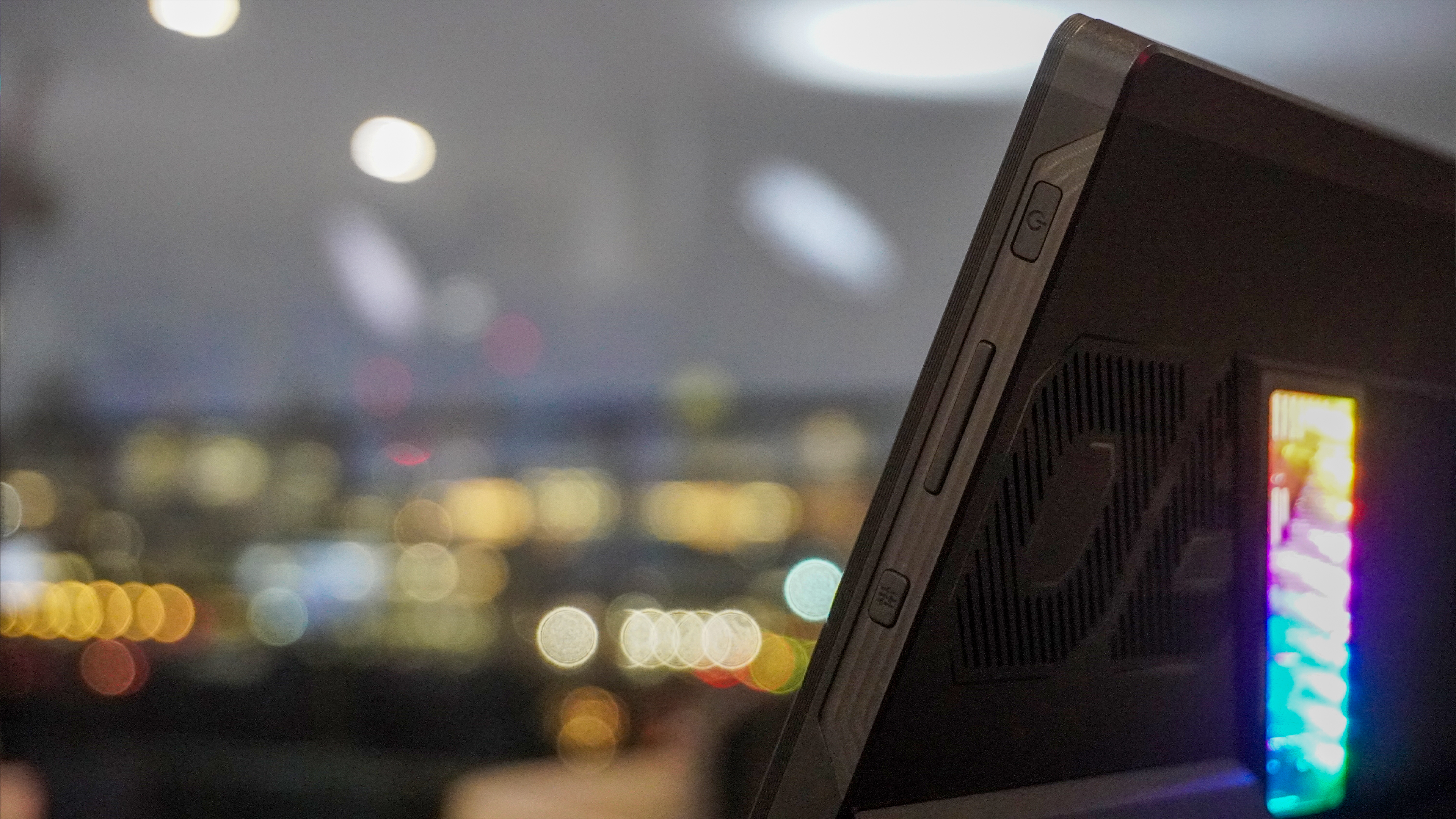
While I can sit here and marvel at the engineering achievements of Asus and AMD, at the end of the day, this is an RTX 4060-level gaming system starting at $2,100. I’ve got to admit that when it comes to getting to the purchase decision, that compromise of battery life and size in favor of something cheaper will sway a lot of you.
For example, the Asus TUF Gaming A14 may be bigger and a little more power-hungry, but it is capable of slightly better gaming performance, has more ports, and is $600 less.
Asus ROG Flow Z13: Verdict
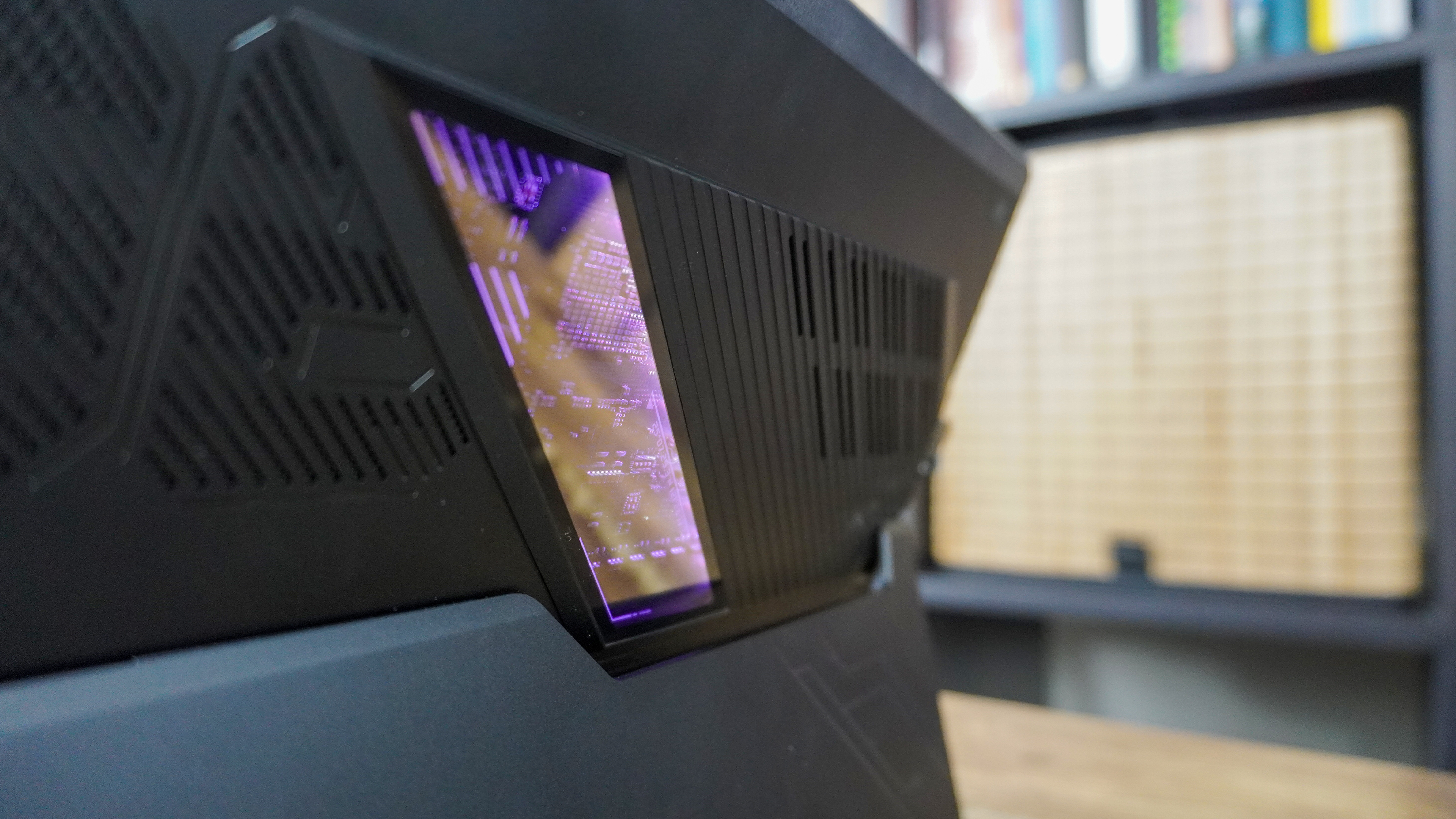
The 2025 Asus ROG Flow Z13 is the epitome of balance. I've talked about the idea of a dedicated graphics card becoming a thing of the past in laptops — an intersection point between power-hungry GPUs and integrated graphics where users get all the fidelity and frames per second they could possibly want without sacrificing too much battery life.
It’s a controversial idea, and dedicated graphics will still be a thing for a long time to come. But the Flow Z13 is the first realization that this balance is actually possible. Asus has found the missing link between a gaming laptop and a PC gaming handheld — giving you the best of both worlds.
And provided you play by AMD’s rules when it comes to ray tracing (honestly, you won’t miss it), you’re rewarded with a real workhorse by day and a AAA gaming mini monster by night.
A couple years ago, I said the Asus ROG Flow Z13 needed some more time in the oven. And now, it’s come out the oven as one of my favorite devices of the whole year.

Jason brings a decade of tech and gaming journalism experience to his role as a Managing Editor of Computing at Tom's Guide. He has previously written for Laptop Mag, Tom's Hardware, Kotaku, Stuff and BBC Science Focus. In his spare time, you'll find Jason looking for good dogs to pet or thinking about eating pizza if he isn't already.
You must confirm your public display name before commenting
Please logout and then login again, you will then be prompted to enter your display name.
